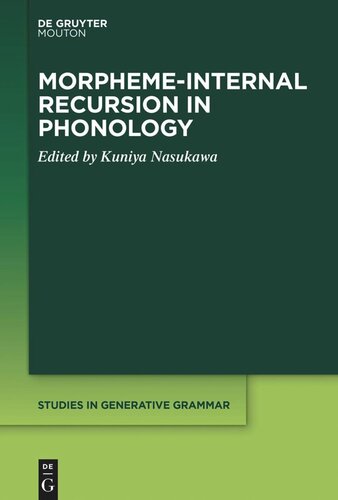

Most ebook files are in PDF format, so you can easily read them using various software such as Foxit Reader or directly on the Google Chrome browser.
Some ebook files are released by publishers in other formats such as .awz, .mobi, .epub, .fb2, etc. You may need to install specific software to read these formats on mobile/PC, such as Calibre.
Please read the tutorial at this link: https://ebookbell.com/faq
We offer FREE conversion to the popular formats you request; however, this may take some time. Therefore, right after payment, please email us, and we will try to provide the service as quickly as possible.
For some exceptional file formats or broken links (if any), please refrain from opening any disputes. Instead, email us first, and we will try to assist within a maximum of 6 hours.
EbookBell Team

4.3
18 reviewsGenerative phonology aims to formalise two distinct aspects of phonological processes: the functional and the representational. Since functions operate on representations, it is clear that the functional aspect is influenced by the form of representations, i.e. different types of representation require different types of rules, principles or constraints. This volume examines the representational issue in phonology and considers what kind of representation is most appropriate for recent models of generative phonology. In particular, it provides the first platform for debate on the place of morpheme-internal structure and on the formal status of phonology in the language faculty, and attempts to identify phonological recursive structure as a means of capturing frequently observed processes.